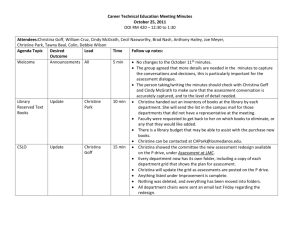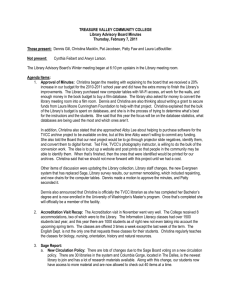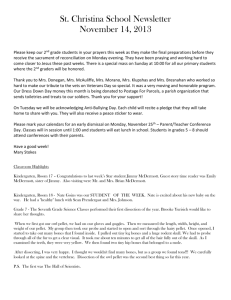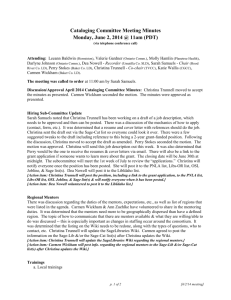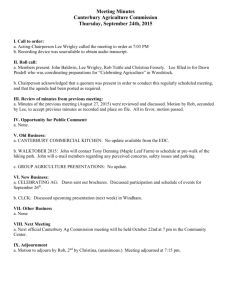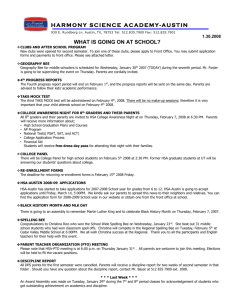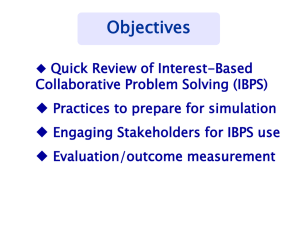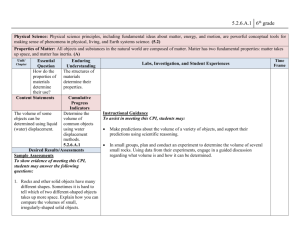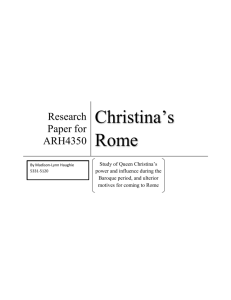Seminar Discussion Questions for the Week of 01 February
advertisement
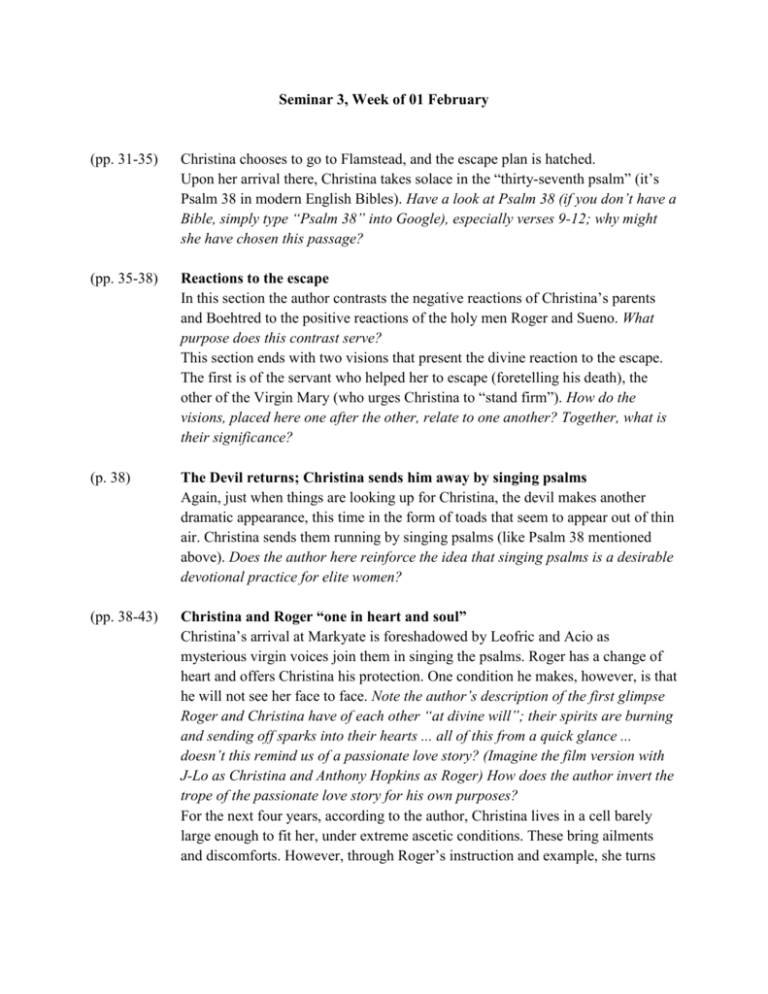
Seminar 3, Week of 01 February (pp. 31-35) Christina chooses to go to Flamstead, and the escape plan is hatched. Upon her arrival there, Christina takes solace in the “thirty-seventh psalm” (it’s Psalm 38 in modern English Bibles). Have a look at Psalm 38 (if you don’t have a Bible, simply type “Psalm 38” into Google), especially verses 9-12; why might she have chosen this passage? (pp. 35-38) Reactions to the escape In this section the author contrasts the negative reactions of Christina’s parents and Boehtred to the positive reactions of the holy men Roger and Sueno. What purpose does this contrast serve? This section ends with two visions that present the divine reaction to the escape. The first is of the servant who helped her to escape (foretelling his death), the other of the Virgin Mary (who urges Christina to “stand firm”). How do the visions, placed here one after the other, relate to one another? Together, what is their significance? (p. 38) The Devil returns; Christina sends him away by singing psalms Again, just when things are looking up for Christina, the devil makes another dramatic appearance, this time in the form of toads that seem to appear out of thin air. Christina sends them running by singing psalms (like Psalm 38 mentioned above). Does the author here reinforce the idea that singing psalms is a desirable devotional practice for elite women? (pp. 38-43) Christina and Roger “one in heart and soul” Christina’s arrival at Markyate is foreshadowed by Leofric and Acio as mysterious virgin voices join them in singing the psalms. Roger has a change of heart and offers Christina his protection. One condition he makes, however, is that he will not see her face to face. Note the author’s description of the first glimpse Roger and Christina have of each other “at divine will”; their spirits are burning and sending off sparks into their hearts ... all of this from a quick glance ... doesn’t this remind us of a passionate love story? (Imagine the film version with J-Lo as Christina and Anthony Hopkins as Roger) How does the author invert the trope of the passionate love story for his own purposes? For the next four years, according to the author, Christina lives in a cell barely large enough to fit her, under extreme ascetic conditions. These bring ailments and discomforts. However, through Roger’s instruction and example, she turns this suffering to her credit. Not even real fire can turn Roger away from his prayers – what does this tell us about a holy man? Christina has a vision where the “fairest of the children of men” (Christ) gives her a golden cross as a pledge. But it is Roger who actually interprets the vision, which foretells Christina’s release for her marriage vow. Beohtred , after experiencing a vision of the Virgin Mary, comes to Markyate to release Christina from her vow. [One problem here ... hasn’t Christina been hiding in Roger’s wall for the last four years so that nobody will know where she is? How does Beohtred know where to find her?] Note the author’s depiction of the scene where Beohtred releases Christina; what does this tell us about the legal status of marriage at this time? (pp. 43-45) Planning for the future Christina experiences a vision which confirms that she will take over the priory after Roger dies. What does this vision, especially the emphasis on her beauty, tell us about the devotion to the Virgin Mary at this time? Roger too makes plans for the future, finding Christina a protector in the person of Thurstan, Archbishop of York. What is the significance of the story of Godescalc and his wife losing their horse and finding another one?
